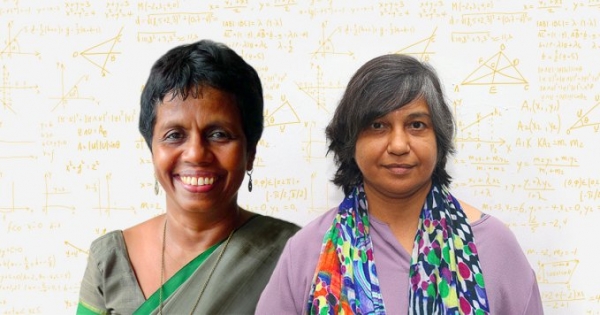The Education Forum has recommended urgent reforms that need to be adoptd in the education sector to address the issues caused by pro-longed closure of schools due to the pandemic.
Issuing a statement, Dr. Tara De Mel and Dr. Sujata Gamage, Co-coordinators of Education Forum said,"·We urge the Ministry of Education to consider the following as priority:
Provide a compressed curriculum covering the essential competencies in language, math, for example, and giving teacher freedom to integrate learning outcomes in other subjects.
Develop a diagnostic test to identify the “learning lag” in essential competencies and make it available for schools for self-assessment.
Decentralize decision-making regarding school closures but use existing data collection mechanisms to keep track of the extent of essential competencies covered by the schools.
Encourage schools to switch to technology supported blended learning even when schools are open so that teachers and students can transition smoothly to home-based learning during an emergency. Best-practices in this regard can be sourced from countries which have already adopted this regime of learning."
The statement also added, "The pandemic has deprived hundreds of millions of students from schooling across the world. In Sri Lanka it is estimated that more than 50% of students were left out since schools closed in March 2020. It is not an acceptable statistic for a country like Sri Lanka. We have an extensive system of schooling with 10,165 schools spread across the country served by 246,592 teachers at the rate of only 16.5 students per teacher on average. Textbooks are distributed free, and 96% of households are reachable by mobile phones. Digital content has been developed by the National Institute of Education and many non-governmental institutions and these are available for downloading. Lacking is a plan to use the resources we have.
Since January 2021, schools started reopening and by end of March almost 100% schools were functional, but teachers and principals find it difficult to cope with hasty & unpredictable decisions on school opening and closing decided in Colombo. One size does not fit all. A community in the Madhu division in Mannar may experience the effects of the pandemic very differently from a community in Colombo or Gampaha districts, for example. It is time to recognize this reality and decentralize decision making.
Content heavy curricula too is an issue. Over the years, the curriculum has been overloaded with overlapping and redundant material. The required thirteen subjects taught in Grade 6-9 are a case in point. We cannot afford to wait until curricular reforms are launched in 2023. Many children would have left school by then. Guidelines for compressing and integrating curricula must be provided now. As early as April 2020, countries such as Bhutan circulated a compressed curriculum to schools avoiding the overloading of existing channels of communication between teachers and parents."










